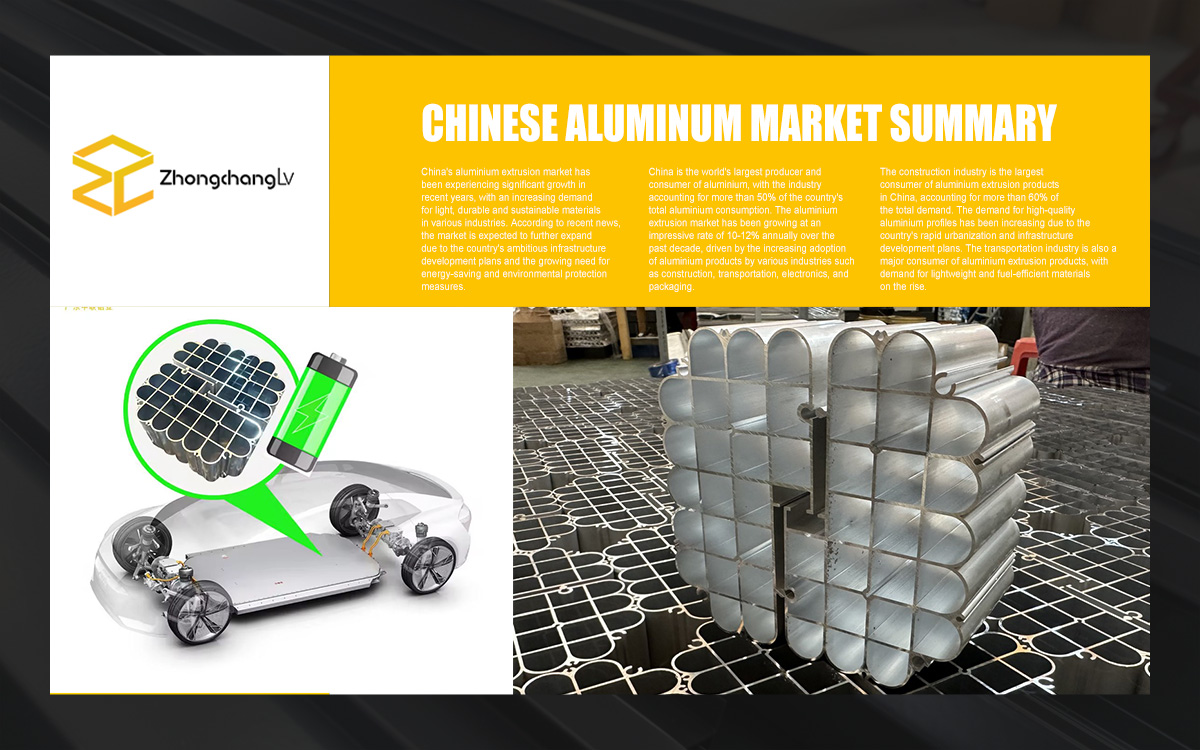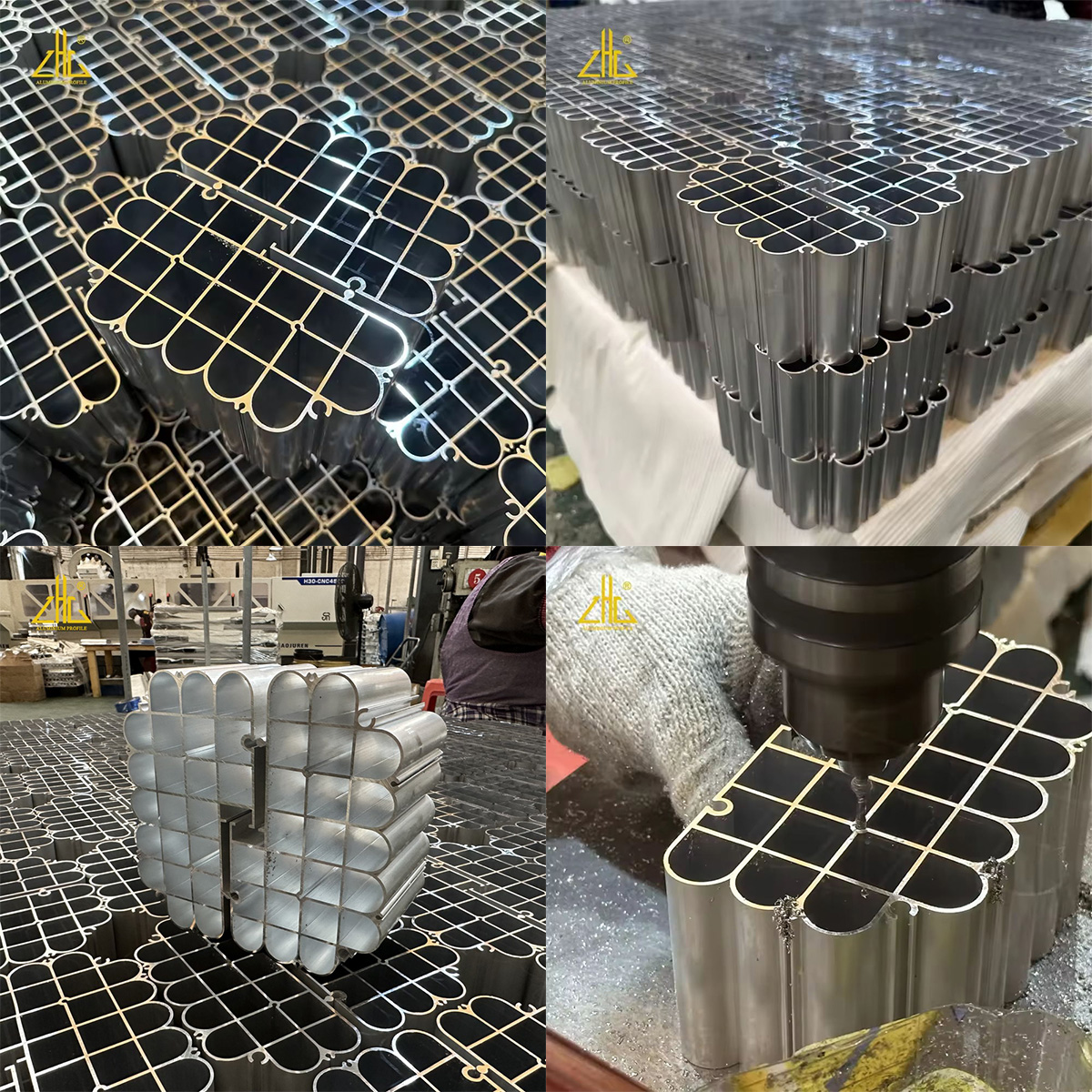The rapid advancement of electric vehicles (EVs) has brought about a surge in demand for high-performance battery enclosures. As the automotive industry shifts towards sustainable and eco-friendly transportation solutions, the need for lightweight, durable, and efficient battery enclosures has become increasingly crucial. This is where 6063 T6 aluminum profile for new energy vehicle battery casing comes into play, offering a cutting-edge solution for the development of next-generation EV battery enclosures.
Aluminum extrusion has long been recognized as a versatile and cost-effective manufacturing process for creating complex shapes with excellent structural integrity. When applied to the production of electric vehicle battery enclosures, aluminum extrusion offers numerous advantages, including high strength-to-weight ratio, corrosion resistance, and exceptional thermal conductivity. These properties make it an ideal material for ensuring the safety, performance, and longevity of EV battery systems.

The 6063 T6 aluminum profile, specifically designed for new energy vehicle battery casing, is engineered to meet the stringent requirements of modern EV applications. Its high tensile strength and superior formability allow for the creation of intricate and customized designs, enabling manufacturers to optimize the shape and structure of battery enclosures for maximum efficiency. Additionally, the T6 temper designation signifies that the aluminum alloy has undergone a solution heat treatment and artificial aging process, resulting in enhanced mechanical properties and improved resistance to deformation.
One of the key benefits of utilizing aluminum extrusion for electric vehicle battery enclosures is the ability to achieve lightweight yet robust designs. As the automotive industry continues to prioritize energy efficiency and range optimization, reducing the weight of battery enclosures is paramount. The 6063 T6 aluminum profile offers a compelling solution by enabling the creation of intricate and hollow cross-sectional profiles, minimizing material usage without compromising structural integrity. This not only contributes to the overall weight reduction of EVs but also enhances their driving range and performance.
Moreover, the exceptional thermal conductivity of aluminum makes it an ideal choice for dissipating heat generated during battery operation. Efficient thermal management is critical for maintaining the optimal operating temperature of EV batteries, as excessive heat can degrade performance and shorten the lifespan of the battery cells. By utilizing 6063 T6 aluminum profiles in the construction of battery enclosures, manufacturers can leverage the material’s superior thermal conductivity to effectively dissipate heat, ensuring the long-term reliability and safety of the battery system.

In addition to its mechanical and thermal properties, aluminum extrusion offers unparalleled design flexibility, allowing for the integration of various features and components within the battery enclosure. This includes the seamless incorporation of mounting brackets, cooling channels, and structural reinforcements, enabling the creation of highly functional and integrated battery housing solutions. Furthermore, the ability to achieve complex geometries and precise tolerances through aluminum extrusion facilitates the seamless integration of battery enclosures into the overall vehicle architecture, optimizing space utilization and enhancing overall vehicle performance.
The adoption of 6063 T6 aluminum profiles for new energy vehicle battery casing also aligns with the industry’s sustainability goals. Aluminum is fully recyclable, and its lightweight nature contributes to the overall energy efficiency of electric vehicles. By choosing aluminum extrusion for battery enclosures, automakers can reduce the environmental impact of their vehicles while simultaneously enhancing their performance and safety.
Looking ahead, the demand for advanced battery enclosures for electric vehicles is expected to grow exponentially as the global automotive industry transitions towards electrification. The development and utilization of 6063 T6 aluminum profiles for new energy vehicle battery casing represent a significant step towards meeting this demand, offering a compelling solution that combines lightweight construction, exceptional strength, and efficient thermal management.
In conclusion, the application of 6063 T6 aluminum profiles through aluminum extrusion for electric vehicle battery enclosures represents a pivotal advancement in the development of next-generation EVs. By harnessing the unique properties of aluminum, manufacturers can create battery enclosures that are not only lightweight and durable but also highly efficient in managing thermal loads. As the automotive industry continues to embrace sustainable mobility solutions, the utilization of aluminum extrusion for new energy vehicle battery casing is poised to play a pivotal role in shaping the future of electric transportation.
Media Contact
Company Name: Foshan Zhongchang Aluminium Co., Ltd.
Email: Send Email
Country: China
Website: https://www.zc-aluminum.com/
